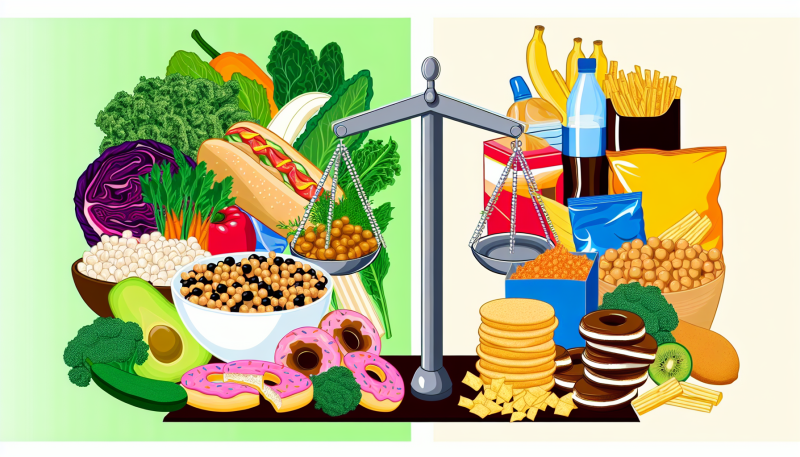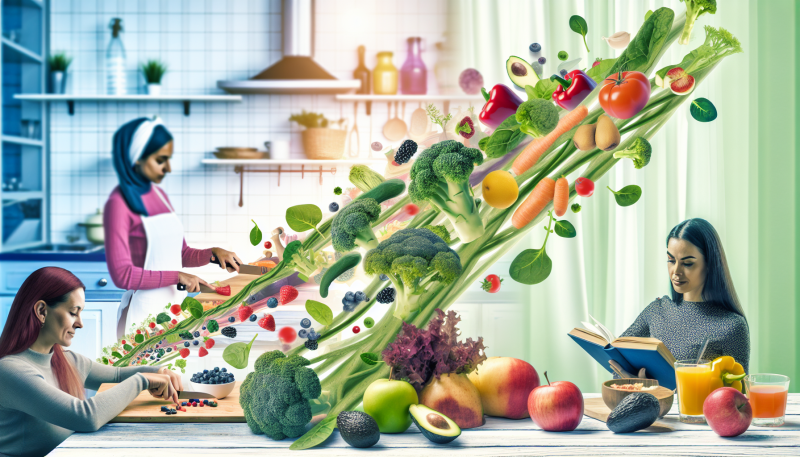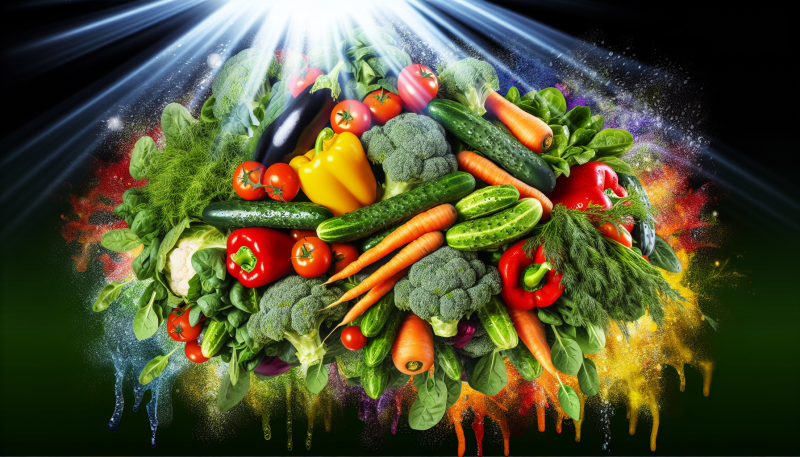When transitioning to a plant-based diet, it's important to consider potential nutritional deficiencies that could arise. While fruits, vegetables, nuts, and grains are packed with various nutrients, they may lack certain essential vitamins and minerals that our bodies need. This is one of the hidden negatives of plant based diet that many people overlook.
One common deficiency is Vitamin B12, which is primarily found in animal products. Without careful planning, individuals following a plant-based diet can quickly find themselves low in this vital nutrient. Vitamin B12 is crucial for nerve function and the production of red blood cells. Therefore, incorporating fortified foods or supplements is essential to ensure adequate intake.
Another nutrient to watch out for is iron. While plant sources of iron, like lentils and spinach, do exist, they contain non-heme iron, which is not as easily absorbed by the body as heme iron found in animal products. To optimize iron absorption from plant sources, combining them with vitamin C-rich foods is a smart strategy. This can help address one of the significant negatives of plant based diet by ensuring you receive sufficient iron.
Omega-3 fatty acids are also often lacking in a strictly plant-based diet. Found abundantly in fish, these essential fats play a critical role in heart and brain health. Vegetarians and vegans can turn to flaxseeds, chia seeds, and walnuts for plant-based sources, but it's important to ensure you're getting enough to meet your health needs. Being aware of these nutrients is key to navigating the hidden negatives of plant based diet effectively.
Possible Digestive Issues
While many people enjoy the health benefits of a plant-based diet, it's important to consider some potential drawbacks. One of the most significant negatives of a plant based diet can be digestive issues. Transitioning to a diet rich in fiber can sometimes overwhelm the digestive system, especially for those who are not used to consuming large amounts of fruits, vegetables, and whole grains.
Some individuals may experience bloating, gas, or a change in bowel habits as their gut adjusts to a higher fiber intake. This is often due to the fermentation of fiber by the bacteria in the gut, which, while generally healthy, can cause discomfort during the adaptation period. It's crucial to gradually introduce fiber-rich foods to minimize these digestive disturbances and allow the body time to adjust.
Moreover, certain plant-based foods can also cause sensitivities or allergies. Ingredients like beans and lentils are high in fiber but can be difficult for some people to digest, leading to gas or stomach cramps. For those with existing digestive conditions, such as irritable bowel syndrome (IBS), navigating a plant-based diet may require careful planning to avoid triggering symptoms.
In addition, there are essential nutrients that might be less bioavailable in a plant-based diet. For example, iron and vitamin B12 are primarily found in animal products, and deficiencies in these nutrients can lead to digestive issues over time. Ensuring a balanced intake of vitamins and minerals is critical, and sometimes supplementation or thoughtful food combining is necessary to prevent these negatives of plant based diet.
Social Challenges and Isolation
The shift to a plant-based diet can lead to unexpectedly isolating experiences. Many people find the transition challenging, not just in terms of food choices but also in social settings. When you choose to eat differently from your friends and family, it can create a sense of separation. Social gatherings often revolve around food, and if you're the only one opting for a plant-based meal, you may feel left out or even pressured to abandon your choices.
Moreover, discussing your dietary preferences can sometimes prompt unwanted attention or criticism. Friends or family members may question your decisions, leading to uncomfortable conversations. This can foster a sense of isolation, especially if those around you don't understand the reasons behind your choices or dismiss them as trendy or unnecessary. The emotional weight of defending your diet can be one of the overlooked negatives of a plant-based diet.
Eating out can also present challenges. Many restaurants still offer limited plant-based options, making it tough to enjoy meals with friends. You might end up feeling like a burden while trying to find a suitable meal, which can deter social outings altogether. Such experiences can create a rift, making it harder to maintain connections with those who don't share your dietary preferences.
Feeling isolated can sometimes lead to a sense of loneliness over time. The mental health aspect cannot be ignored, as social interactions play a crucial role in our overall well-being. If the negatives of a plant-based diet lead you to withdraw from social events, the intended health benefits of your diet may be overshadowed by emotional struggles. Finding a balance between enjoying your plant-based lifestyle and maintaining social connections is essential to countering these challenges.
The Cost of Alternatives
One significant aspect to consider is the rising popularity of plant-based meat alternatives. These products, often packed with protein and flavor, are marketed as healthier substitutes for traditional meat. However, they frequently come with a hefty price tag. For individuals or families on a budget, the cost of purchasing these alternatives regularly can become prohibitive, making it difficult to maintain a plant-based diet without breaking the bank.
Moreover, when exploring the costs associated with organic and non-GMO options, which many people prefer for their health benefits, the expenses can skyrocket even further. Many consumers don't realize that the nutritional value of organic produce doesn't always justify the increased cost. As a result, opting for these pricier alternatives may lead to a budgetary strain, which is another of the overlooked negatives of plant based diet.
Additionally, convenience is another factor impacting costs. Pre-packaged plant-based meals tend to cost significantly more than their traditional counterparts. For someone looking to save time while following a plant-based lifestyle, relying on these ready-to-eat options can lead to overspending. As a result, the allure of a convenient and healthy diet can sometimes overshadow the financial implications and contribute to increased household expenses.



